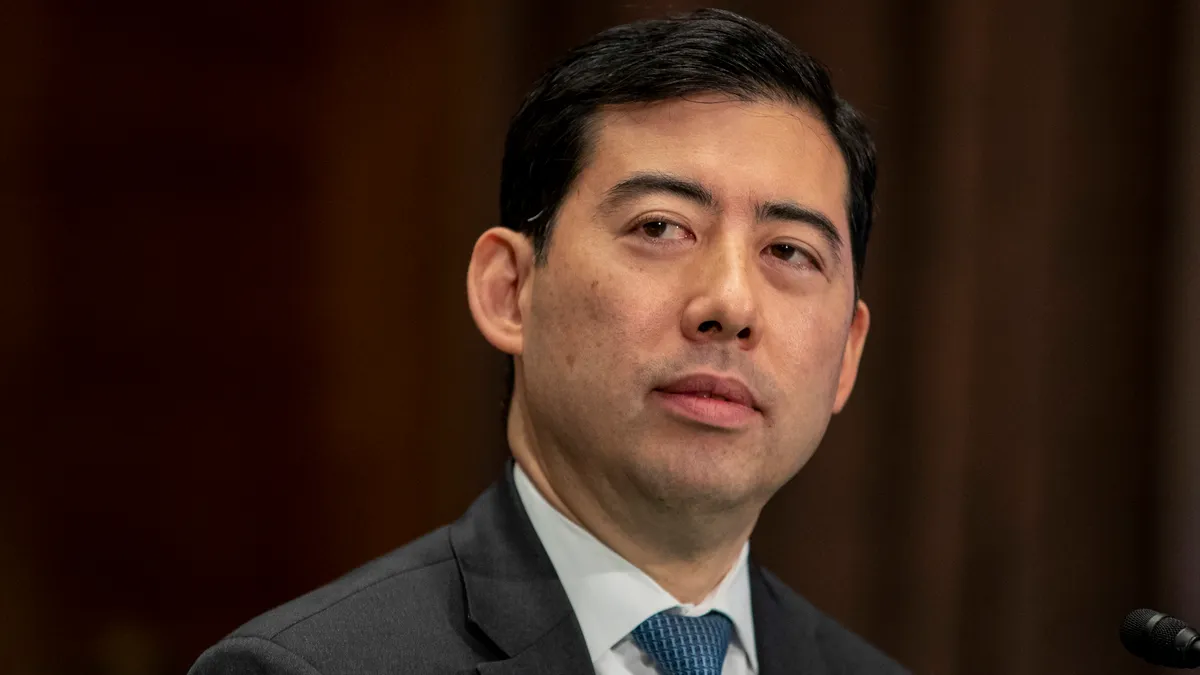The Federal Trade Commission’s loss last week in court over Microsoft’s acquisition of Activision Blizzard could be playing a role in the timing of the agency’s investigation into the data practices of OpenAI, whose biggest investor is Microsoft, former Federal Communications Commission commissioner Harold Furchtgott-Roth says.
“I’ve seen this in government regulatory agencies in the past,” Furchtgott-Roth, an economist, told Legal Dive. “I saw it a lot when I was at the FCC. When you lose in court, you create some problem for a company in some unrelated area. This very much could be a leverage issue.”
Shortly after the FTC lost an effort to get a preliminary injunction against Microsoft’s $69 billion acquisition of game maker Activision Blizzard, the agency sent OpenAI a sweeping civil investigative demand letter. The letter was first reported by The Washington Post on July 13.
In addition to asking the company about the data it collects to train its generative AI large language models, the CID seeks information on virtually all aspects of the company’s business, from its top customers to how it markets its tools to how it treats people’s sensitive information.
“Describe in detail how you obtained the data, e.g., by scraping the data, purchasing it from third parties, or by other means,” the 20-page letter says.
As generative AI tools, Open AI’s products use massive amounts of data to train their algorithms, which can then respond to prompts to create original content.
Legal technology is one of the early and big users of generative AI with its potential to help in-house legal teams and law firms make quick work of basic document drafting, including contracts and court filings.
The technology is in its early stages and has created at least one high-profile snafu when a lawyer used a generative AI tool to research a court filing that was later found to cite fake cases.
Furchtgott-Roth thinks the FTC could be using its OpenAI CID to regain the offensive after its loss to Microsoft in federal court last week.
In dismissing the FTC’s request for a preliminary injunction to stop Microsoft’s acquisition of Activision Blizzard, the court said the agency failed to show the deal would put Sony and other rival gaming console makers at a competitive disadvantage.
“The FTC has not shown a likelihood it will prevail on its claim this particular vertical merger in this specific industry may substantially lessen competition,” Judge Jacqueline Scott Corley of the U.S. District Court for the Northern District of California said in her decision. “To the contrary, the record evidence points to more consumer access to Call of Duty and other Activision content.”
Microsoft can now go ahead with the deal, but the FTC has said the matter isn’t over; it still plans to look at the acquisition in an administrative law proceeding, which, should that proceeding find the deal anticompetitive, and should the full FTC board agree, the agency could seek an unprecedented unwinding of the deal.
“This is Lina Khan inventing a new process,” said Furchtgott-Roth, referring to the chair of the FTC who has come under criticism for her aggressive antitrust efforts.
In addition to losing against Microsoft, the agency also recently lost against Meta in its acquisition of virtual reality fitness app maker Within Unlimited.
Ordinarily, the FTC would review the deal under the Hart-Scott-Rodino process and work out concessions to get the deal through. If there’s a court challenge, it would be to the deal itself.
In the Microsoft-Activision case, the court action was only for the injunction, leaving the substantive question unresolved, although the court said the FTC faced an uphill battle based on the evidence presented so far.
“The administrative law judge has an unlimited amount of time,” Furchtgott-Roth said. “Who knows what they’re going to find? A year or two from now, maybe a full FTC gives a recommendation and they say they’re going to oppose the merger, and ask to have it unwound. There’s no precedent for that.”
Microsoft and the FTC can still come together to work out an agreement, and maybe the agency’s CID issued to OpenAI is part of the effort to make a deal happen, since any pressure on OpenAI is also pressure on Microsoft as its biggest funder.
“This FTC investigation has got to be a big distraction,” Furchtgott-Roth said. “And information can get leaked out of the FTC. It may be a coincidence, but I have to believe if I were general counsel at Microsoft, this would really catch my attention. This is vindictive. They’re trying to show us they can do us harm.”
The FTC told Legal Dive it won’t comment on a pending investigation. “FTC investigations are nonpublic, so we generally do not comment on whether we are investigating a particular matter,” said Juliana Gruenwald of the FTC’s public affairs office.



















